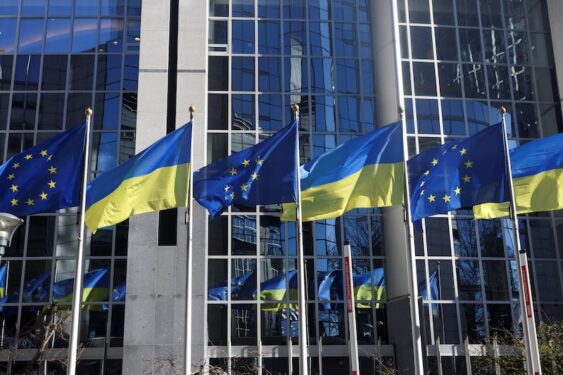By Elise Ann Allen
ROME (Crux) — Europe’s top body of bishops has condemned the European Parliament’s favorable vote Thursday, July 7, on a resolution calling for access to abortion to be included in the E.U. Charter of Fundamental Rights.

The resolution, titled, “European Parliament resolution on the US Supreme Court decision to overturn abortion rights in the United States and the need to safeguard abortion rights and women’s health in the EU,” also condemns the Supreme Court’s decision last month to overturn legislation protecting federal abortion rights.
The resolution was adopted with 324 votes in favor, 155 against, and 38 abstentions.
In a July 8 statement, Father Manuel Barrios Prieto, General Secretary of the Commission of the Bishops’ Conferences of the European Union (COMECE), voiced regret for the resolution, which he said, “paves the way for a deviation from universally recognized human rights and misrepresents the tragedy of abortion for mothers in difficulties.”
“We must work for more unity among Europeans, not to create higher ideological barriers and polarization,” Father Barrios said, insisting on the need to support pregnant women and accompany them so they can “overcome their difficulties in problematic situations.”
The resolution said, “the protection of safe and legal abortion has direct implications for the effective exercise of the rights recognized in the Charter of Fundamental Rights, such as human dignity, personal autonomy, equality, and physical integrity.”
It proposed that a seventh article be added to the Charter for Fundamental Rights titled, “Right to abortion. Everyone has the right to safe and legal abortion.”
This resolution comes in the wake of the Supreme Court’s June 24, 5-4 vote in the Dobbs v Jackson case overturning the landmark 1973 Roe v. Wade ruling that found a constitutional right for abortion rooted in a right to privacy.
The court’s decision also overturned the 1992 Planned Parenthood v. Casey ruling that reinforced Roe v. Wade.
With abortion no longer being recognized as a constitutionally protected right, the debate over its legalization now will be determined by voters in individual states.
French President Emmanuel Macron called for abortion rights to be included in the European Charter of Fundamental Rights in January during his reelection campaign.
The European Parliament subsequently passed an initial resolution in June asking that abortion be introduced into the charter as a “fundamental right” after a leaked draft of the Supreme Court’s opinion in the Dobbs v Jackson case was published earlier this year.
In its resolution yesterday, the EU Parliament called for a convention for the revision of the treaties of the EU, and said they expect the European Council “to convene to this end.”
Parliament also proposed that in this process, “the right to safe and legal abortion be included in the Charter,” and that they be involved in every step along the way.
The resolution voiced its “firm solidarity with and support for women and girls in the US,” and called on the United States Congress “to pass a bill that would protect abortion at the federal level.”
It voiced concern about the impact abortion restrictions would have on women in poverty and minority women, saying that to force a woman to carry her child to term against her will is a “violation of human rights and a form of gender-based violence.”
The resolution also called for greater data protection for women who have been to abortion clinics and broader access to contraception. They also asked that a delegation be sent to the United States to evaluate the impact of Dobbs v Jackson and to offer support to pro-choice movements in the U.S.
In his statement, Father Barrios criticized the EU Parliament’s decision to weigh in on the U.S. abortion ruling, saying parliament “should not enter into an area, such as abortion, which is out of its competence, nor interfere in the internal affairs of democratic EU or non-EU countries.”
“Promoting radical political agendas endangers fundamental rights,” such as the freedom of thought, freedom of conscience and religion, freedom of expression, and freedom of assembly, and it “damages social cohesion,” he said.
Father Barrios argued that prioritizing the inclusion of abortion in the charter, which if done would potentially require a revision of all EU treaties, “may seriously endanger the chances of such reform processes while intensifying confrontations among our fellow citizens and between the Member States.”

